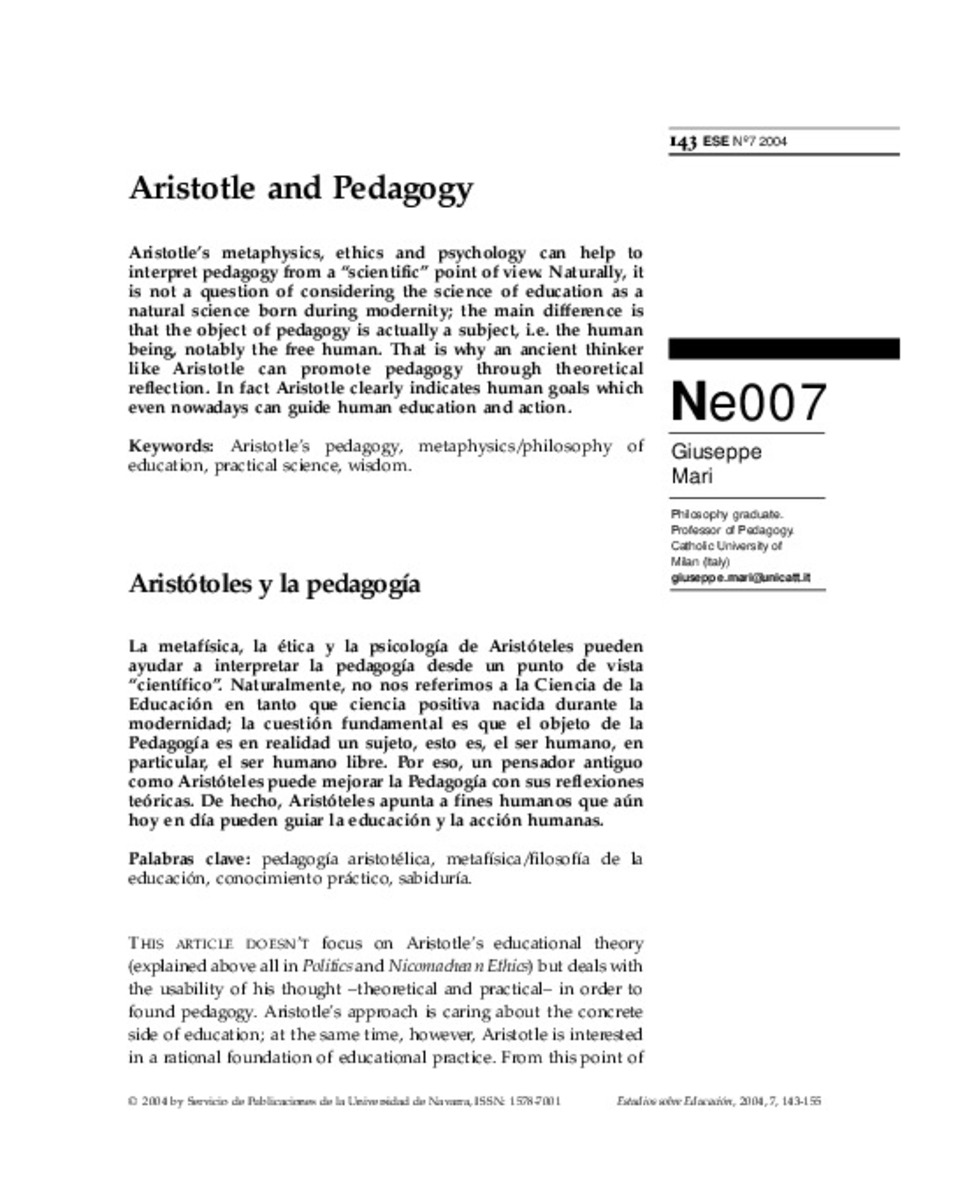Full metadata record
| DC Field | Value | Language |
|---|---|---|
| dc.creator | Mari, G. (Giuseppe) | |
| dc.date.accessioned | 2010-08-09T07:27:17Z | - |
| dc.date.available | 2010-08-09T07:27:17Z | - |
| dc.date.issued | 2004 | - |
| dc.identifier.citation | Giuseppe,Mari . “Aristotle and pedagogy” . ESE. Estudios sobre educación. 2004, Nº 7, PÁG.I43-I55 | es_ES |
| dc.identifier.issn | 1578-7001 | - |
| dc.identifier.uri | https://hdl.handle.net/10171/8733 | - |
| dc.description.abstract | Aristotle’s metaphysics, ethics and psychology can help to interpret pedagogy from a “scientific” point of view. Naturally, it is not a question of considering the science of education as a natural science born during modernity; the main difference is that the object of pedagogy is actually a subject, i.e. the human being, notably the free human. That is why an ancient thinker like Aristotle can promote pedagogy through theoretical reflection. In fact Aristotle clearly indicates human goals which even nowadays can guide human education and action. | es_ES |
| dc.language.iso | eng | es_ES |
| dc.publisher | Servicio de Publicaciones de la Universidad de Navarra | es_ES |
| dc.rights | info:eu-repo/semantics/openAccess | es_ES |
| dc.subject | Aristotle’s pedagogy | es_ES |
| dc.subject | Metaphysics/philosophy of education | es_ES |
| dc.subject | Practical science | es_ES |
| dc.subject | Wisdom | es_ES |
| dc.title | Aristotle and pedagogy | es_ES |
| dc.type | info:eu-repo/semantics/article | es_ES |
| dc.identifier.doi | 10.15581/004.7.25596 | es_ES |
Files in This Item:
Statistics and impact
Items in Dadun are protected by copyright, with all rights reserved, unless otherwise indicated.






